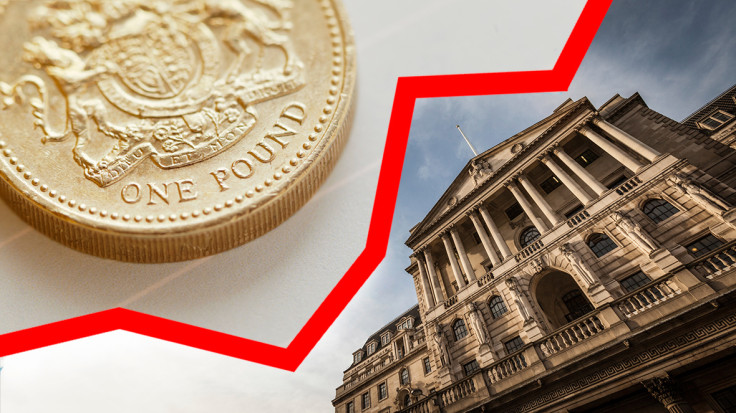FX Focus: Pound tumbles after Bank of England keeps rates unchanged
BoE leaves rates at 0.25% but warns inflation will peak earlier than expected.

The pound fell sharply on Thursday (11 May), after the Bank of England (BoE) held the UK's benchmark interest rate at 0.25% at the conclusion of its latest Monetary Policy Committee (MPC) meeting.
As largely expected, MPC members voted 7-1 in favour of keeping the interest rates unchanged. Crucially, however, the BoE also slightly cut its growth forecast for this year, from 2% to 1.9% but lifted expectations for growth next year from 1.6% three months ago to 1.7%.
"May's BoE Inflation Report confirmed that the MPC is in no hurry to raise interest rates," said Paul Hollingsworth, UK economist at Capital Economics.
"But it also lent some support to our view that it will begin to tighten monetary policy somewhat sooner than markets expect."
Sterling did not react well to the news, sliding 0.60% and 0.41% against the dollar and the euro respectively, to trade at $1.2858 and €1.1852.
"The markets were left disappointed by the fact no other MPC member joined Kristin Forbes in voting for a rate rise," said Fawad Razaqzada, market analyst at Forex.com.
"The pound's fall was also exacerbated by the bank's assessment about household consumption, which it said is set to slow more than forecast in the near-term."
Jake Trask, FX research director at OFX, added: "With the pound/dollar rate tantalisingly close to $1.30, [sterling] plummeted to $1.2850 at the conclusion of [BoE Governor Mark Carney's] press conference.
"It seems sterling will remain range-bound for a while yet, with a landslide victory for Theresa May in June's General Election the next big event which could see the pound finally break above the big number."
The pound was also undermined by a dismal reading on the state of the UK's industrial sector, which slowed down for the third consecutive month in March, after output suffered an unexpected decline.
According to the Office for National Statistics (ONS), manufacturing production fell 0.6% in March from the month before, compared with a 0.1% decline recorded in the previous month and analysts' expectations for a 0.2% drop.
Overall industrial production – a broader gauge of the industry – fell 0.5% in March, compared with analysts' expectations for output to drop 0.4%. February's 0.7% decline was revised slightly downward, to a 0.8% drop.
Elsewhere, the dollar struggled for direction as the markets looked past the political turmoil surrounding President Donald Trump's decision to fire FBI Director James Comey.
Flat against the euro, the Australian dollar and the Swiss franc, the dollar fell against the yen to trade at ¥114.02, but gained against its Canadian counterpart, fetching CAD$1.3741.
Meanwhile, the New Zealand dollar fell heavily after the Reserve Bank of New Zealand left its key policy interest rate unchanged at 1.75% overnight, with sterling advancing to nine-month highs just below the NZ$1.90 level."
© Copyright IBTimes 2025. All rights reserved.






















